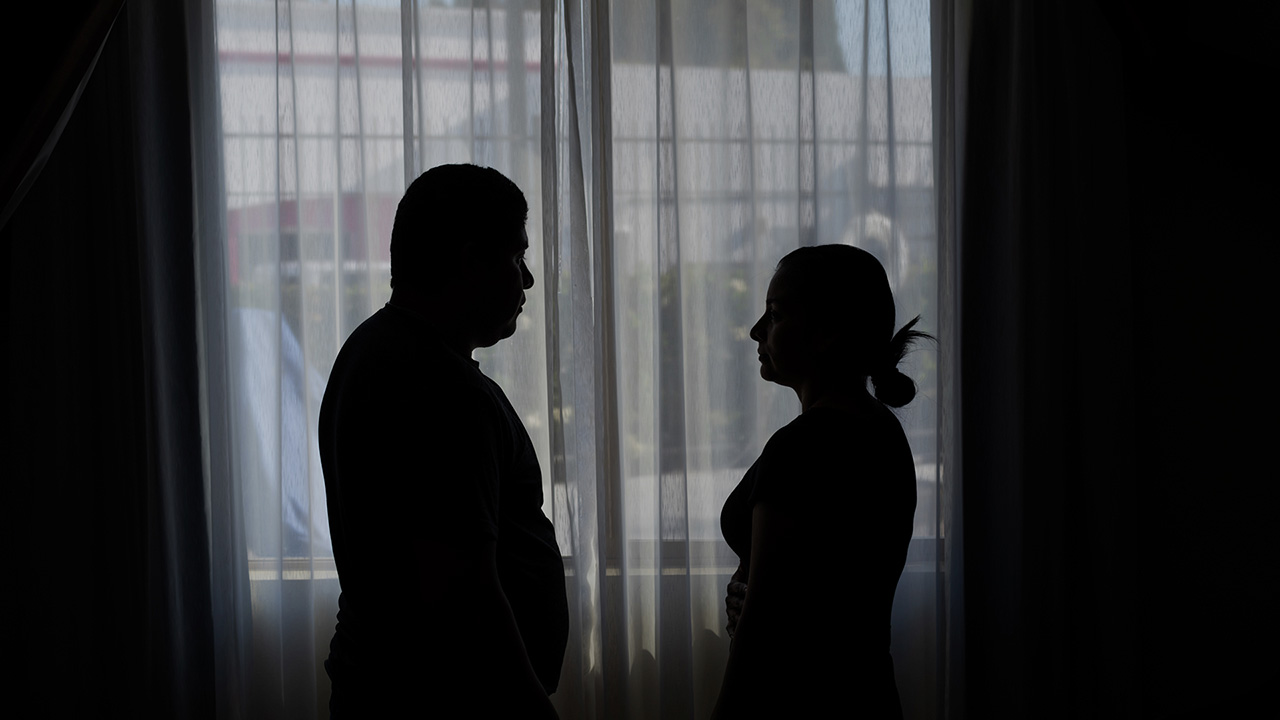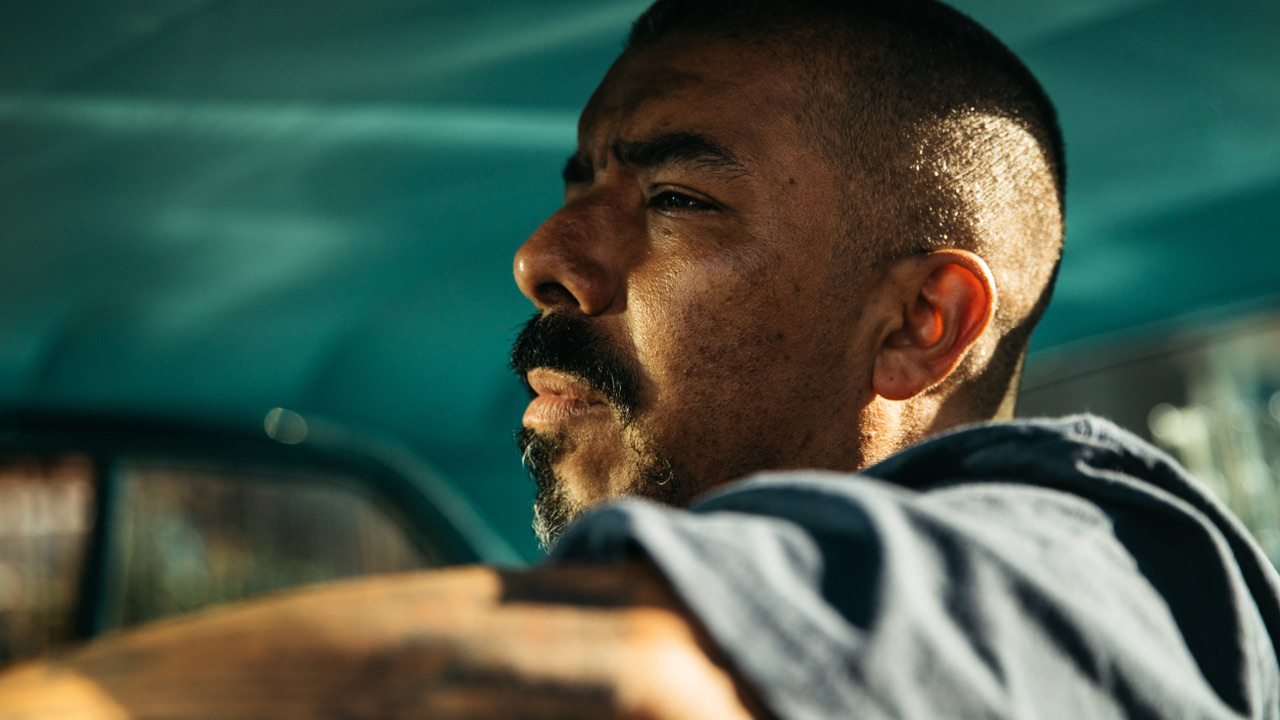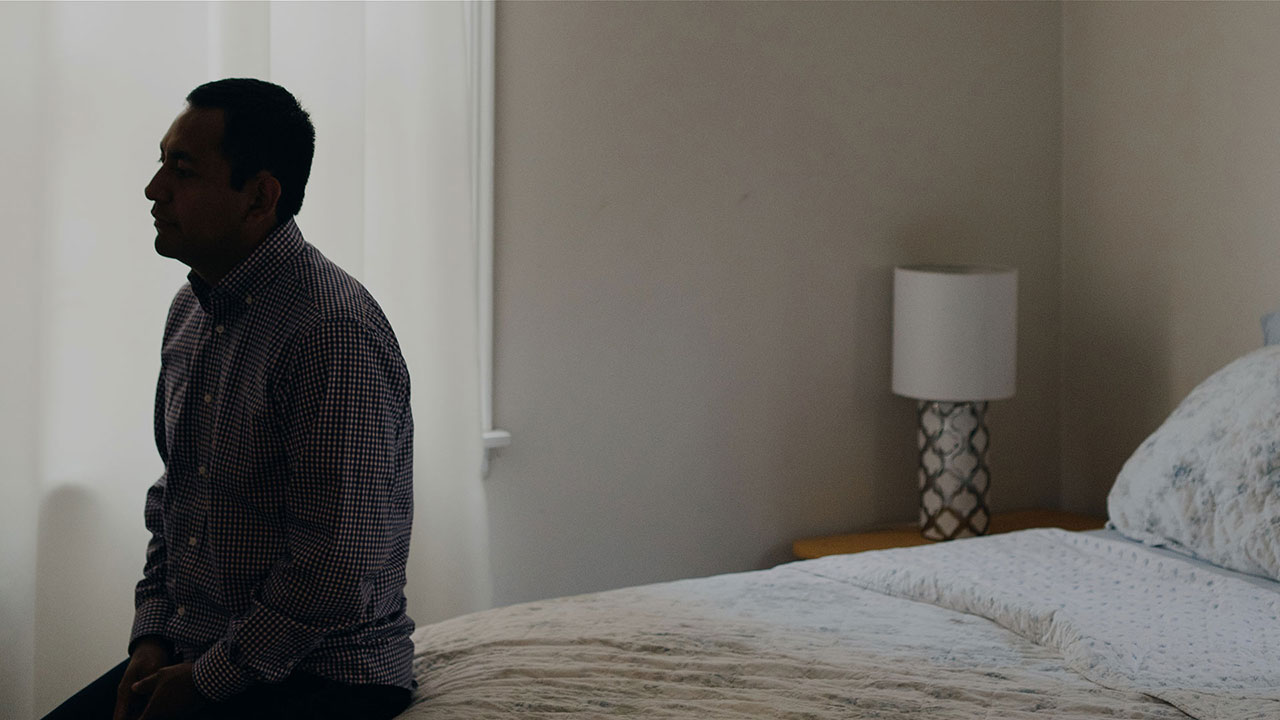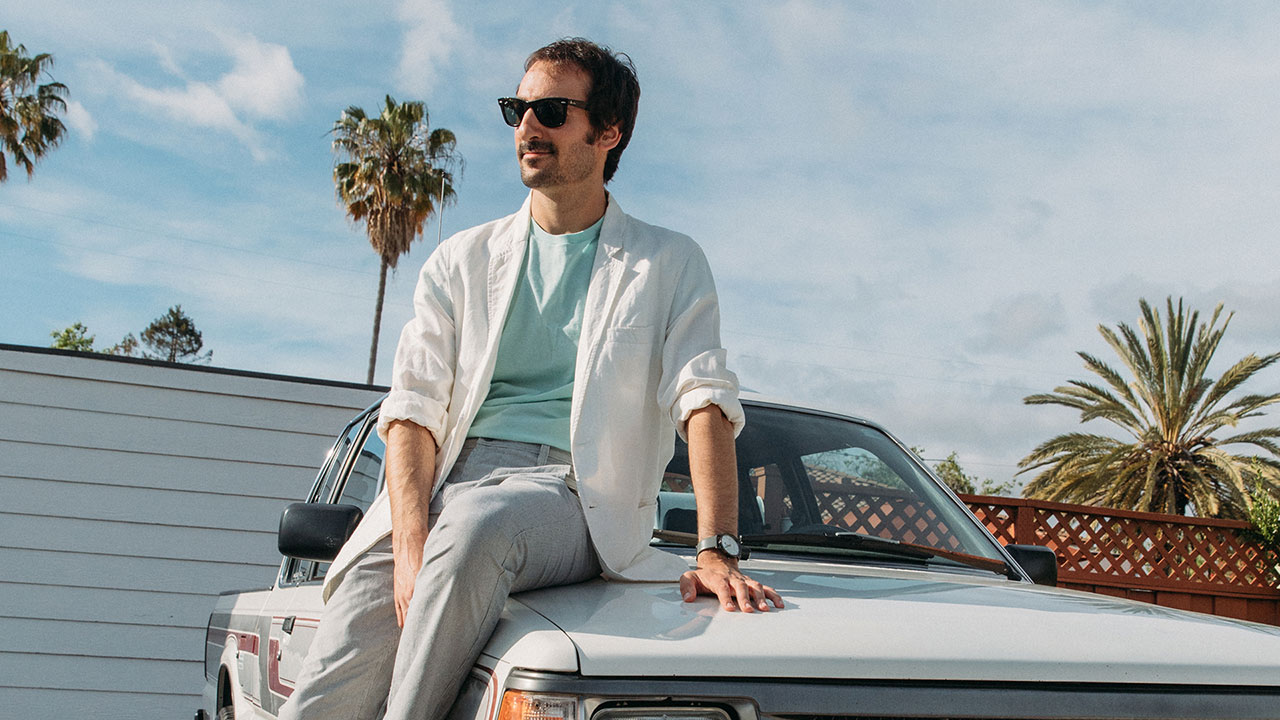“Lowriding started here, in Los Angeles. It’s American history. It’s an American pastime.”
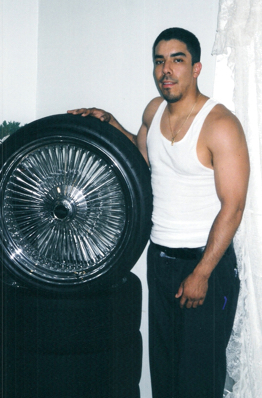
This is a story about reinvention. It’s a story about lowriders, a practice built around the remaking of American cars. It’s a story about a man named Wilson, who is also known as “Punch,” who didn’t think he’d live past 21, and who has rehabilitated himself into a loving father of three children.
Lowriding was born in the Chicano barrios of Los Angeles after World War II. Servicemen returning from the war brought with them specialized mechanical skills, which translated easily into the just beginning practice of car customizations. Lowriders became the vehicle of choice for pachucos, rebellious Mexican-American youth.
Punch himself isn’t Mexican-American—his parents were born in El Salvador, and he was born in LA. Ever since he spotted his first one at the age of 11, his passion has been for customized, handpainted, kitted-out sedans that bounce on hydraulic jacks—lowriders.
01.
A lowrider competes in a hop contest.
02.
Wilson, a.k.a. Punch, grew up in the lowrider culture of West Los Angeles.
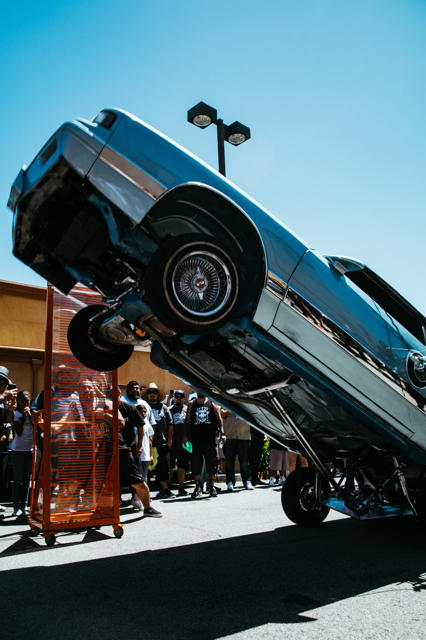 01.
01.
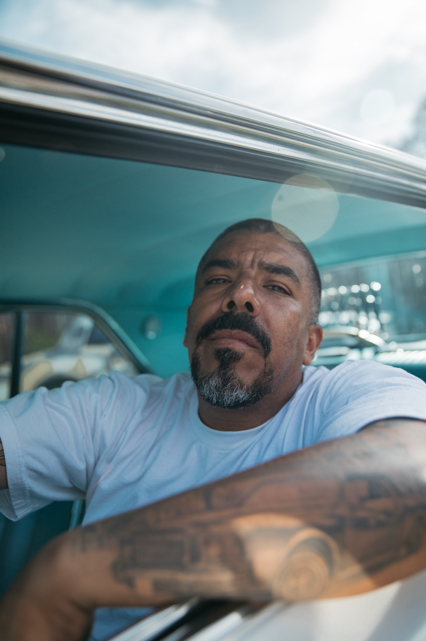 02.
02.
Punch“Seeing a car that’s abandoned and left for dead, I can bring that car back to life. For some of us that’s kind of a representation of yourself, your struggle. That’s what lowriding is.
Early lowriders added heavy blocks (anything from sandbags to bricks) to make the car ride lower—and the added weight, of course, slowed the cars down. Riding “low and slow” played as a kind of statement against the dominant Anglo car culture at the time, which was focused on speed. Later, a customizer figured out how to raise and lower the car’s height with the flip of a switch by using hydraulic pumps and valves left over from World War II-era planes.
Lowriders are always American made, usually General Motors models. Those hydraulic switches originated from great American machinery. It was started in America and is practiced by Americans. As Punch says, “Lowriding is an American pastime.” And though it’s born of the Mexican-American community, it isn’t only enjoyed by Mexican-Americans; Punch isn’t Mexican-American, and there is a rich and shared history of lowriding in the African American community, too. These communities have been historically disenfranchised, made up of socioeconomic outsiders.
01.
Chrome and color.
02.
Cruising.
03.
Style and swagger.
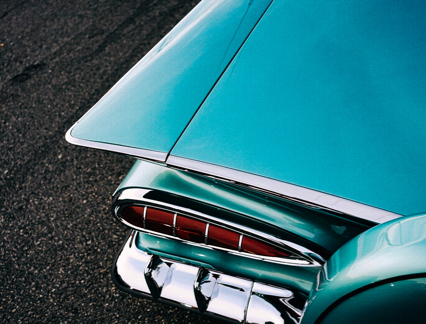 01.
01.
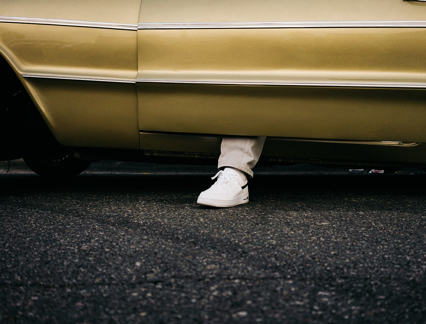 03.
03.
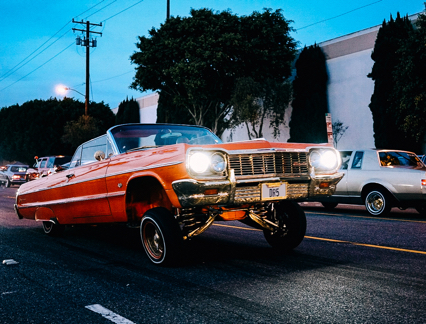 02.
02.
Punch“You hit that corner, and people are looking at you, they’re stopping what they're doing. And you want to be heard, and you want to be seen. You’re a king, and the car is your throne.
"Everybody had a number in mind when they were gonna be killed. My number was 21.” His best friend was killed at 21.
Then, when Punch was 21, he was carjacked. Someone pulled a gun on him at a gas station and drove away with his 1983 Cutlass Supreme Brougham—his most prized lowrider. Years of hard struggle with drugs and gang life followed. “I got myself into a lot of predicaments where I shouldn’t have come out. I was actually looking for it maybe at times. You know what I mean? Because I couldn’t find a way out.”
01.
Punch in his home neighborhood of West Los Angeles.
02.
Punch and his wife, Evelyn.
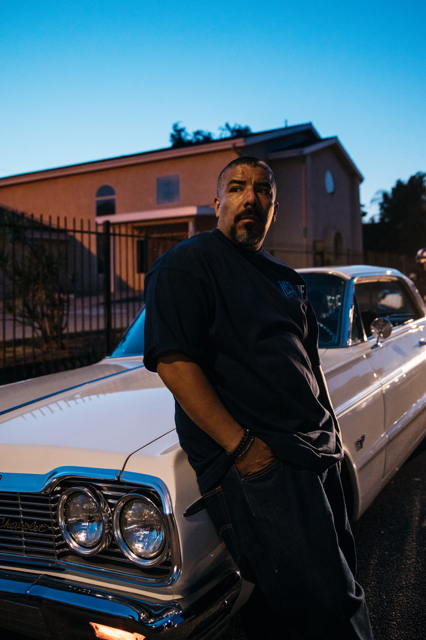 01.
01.
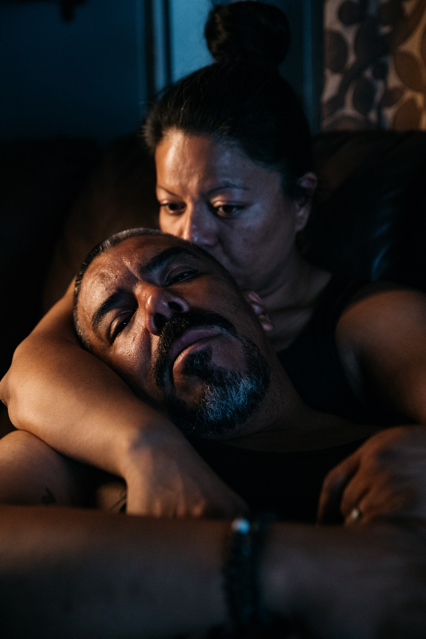 02.
02.
His wife and partner of twenty-plus years, Evelyn, may be the only reason he made it past his bleak magic number of 21. “She saw something in me that I still don’t see in myself,” Punch explains. “There is no me without her.”
When Evelyn got pregnant, everything changed. Evelyn and Punch have three children together: Richie was born deaf, Darlin with cerebral palsy, and Heaven was born premature at six months. They lost another to miscarriage. His children are also the reason for Punch’s personal revival. He got clean. He started his own trucking business. He drives for Lyft. He has purpose now: fatherhood.
“If it wasn't for my children's disabilities, we wouldn’t have these doors open now,” Punch says. “My children have pretty much have paved our way, you know what I mean? They’re taking us down this road that I’ve never expected I would take. But it's important that we go down it.” Punch and Evelyn push their children to do well academically (Darlin just graduated high school), and they are active with Deaf Latinos y Familias, an organization that works with families with deaf children.
01.
Punch and his son, Richie, work on restoring a 1978 Chevy Monte Carlo.
02.
Evelyn with their daughter, Heaven.
03.
Punch with his son, Darlin
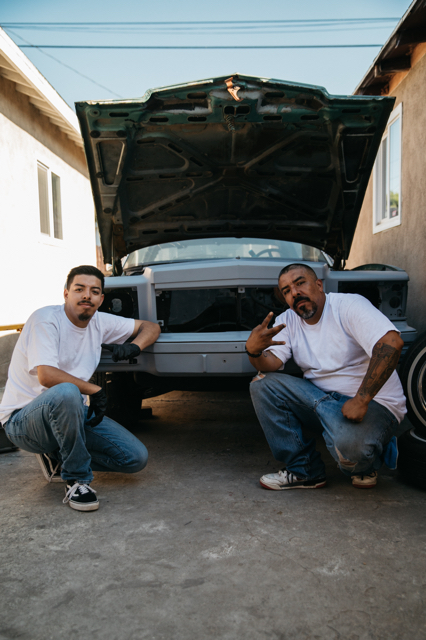 01.
01.
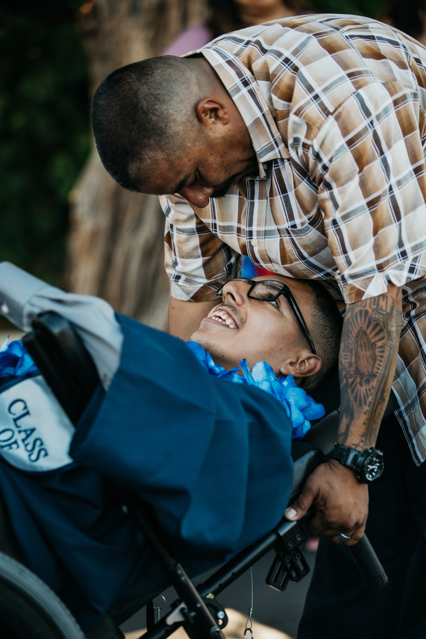 03.
03.
 02.
02.
Punch“I want you to see me. I want you to hear me. I want you to see that no matter what you thought about me or how I was going to end up, either in jail or dead, I’m still here and I’m doing something positive—and that’s what I’m passing down to my kids.
Building a lowrider is an exercise in creative resurrection—and redefinition. It’s about taking something—a staid, American sedan—and the expectations about what it’s supposed to represent, and redesigning it according to one’s own imagination. It’s an exercise in reclamation, too, including what it means for something to be considered “American.” Says Punch: “When you pick up this car from nothing, and you have this vision, and you bring it back to life, and it’s actually there, and you’re bouncing around in it…it’s a great feeling, man. I can’t even describe it to you.”
Today, Punch is rebuilding a 1978 Chevy Monte Carlo with his son, Richie. Piecing together a lowrider is painstaking and expensive, and Punch knows it could take them years to finish it. Tremendous skill is required, both technical and artistic—and plenty of stubborn resilience, too. Many lowriders are never finished at all; they are works in progress, existing in a perpetual state of tinkering. A perpetual state of improvement. Like Punch’s new mindset: “I mean, I f*cked up more than I’ve done good. Now I’m just trying to do good. You know what I mean?”
01.
Punch and Evelyn in their front yard.
02.
Punch, Evelyn, Richie, Darlin, and Heaven.
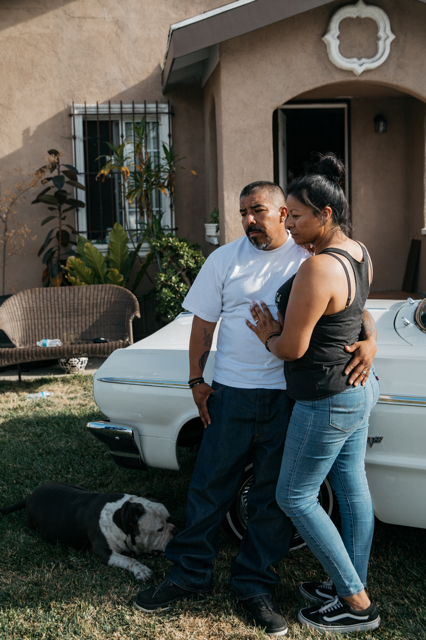 01.
01.
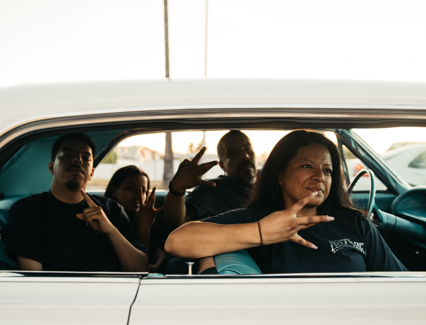 02.
02.
Every issue contributing to our current immigration crisis is interconnected. Your stories inspire us to continue to take a stand — when our community of riders and drivers is threatened, we’re encouraged to take action.
In honor of Punch and his family, we’re humbled to support Deaf Latinos y Familias, an organization providing free American Sign Language education to help Latino families share traditions, stories, and history with deaf and hard-of-hearing children and adults.
Lyft is honored to offer transportation support for Deaf Latinos y Familias' vital mission. Please join us in supporting them.

